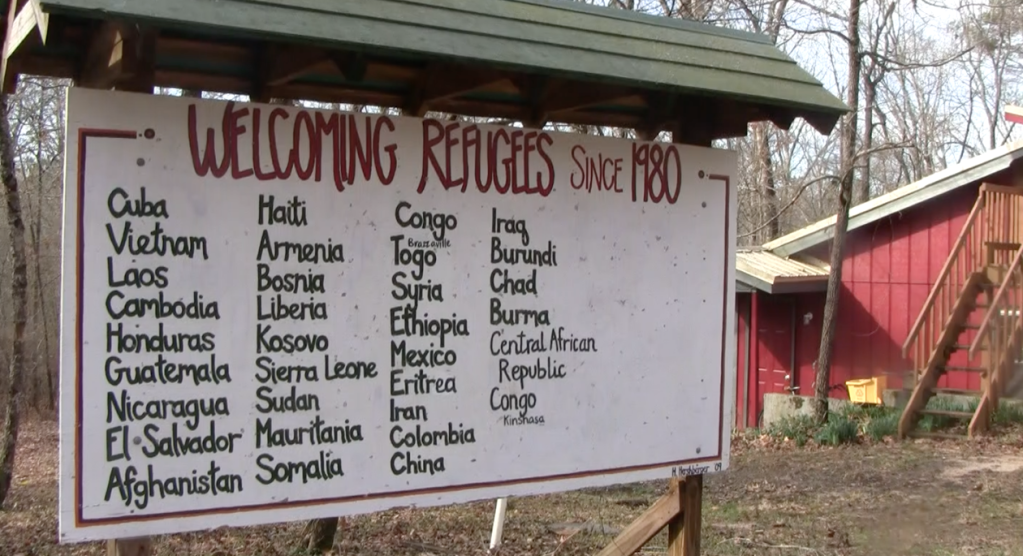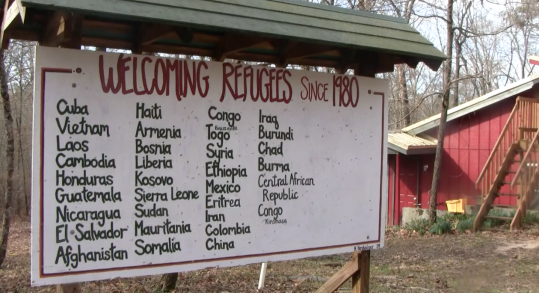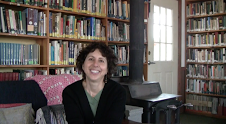Pa Saw Paw and Eh Kaw Htoo arrived in the United States seven years ago, bringing with them two children.
They’re originally from the Southeast Asian nation of Myanmar, also known as Burma, but they lived in a refugee camp in neighboring Thailand for 20 years. Their ethnic group, a Christian minority known as the Karen, have been frequent targets of war and persecution in Myanmar for decades.
The family’s first two months in America were spent living in a cabin at Jubilee Partners, a self-described Christian service community in Comer, in Madison County.
Georgia has become home to many refugees, from many different countries. That’s especially true in the melting pot of metro Atlanta, but some have settled in small towns and rural areas.
For recently arrived refugees, there’s much that’s new about life in the Peach State. The Karen, for instance, had not seen in-house thermostats in their remote tropical homeland.
But American ideas about health and nutrition, and the complexities of the U.S. health care system, are often equally unfamiliar to refugees. The clipboard questionnaires at doctors’ offices and the elaborate check-in procedures at hospitals — which Americans take in stride — can seem bewildering to a newcomer.
Learning the essentials
For 36 years, Jubilee Partners has been giving newly arrived refugees a safe place to live, teaching them basic English skills, and helping them learn to deal with strange new gadgets and practices.
Jubilee’s basic training for new arrivals lasts for two months and involves spending up to 18 hours a week in English classes. The refugees learn how to set a thermostat, how to cook on a gas stove and many other life skills.
[youtube]https://www.youtube.com/watch?v=DbwzAONyQis[/youtube]Because there’s not much work in Madison County, many refugees complete the training and then head for Atlanta’s growing Karen community.
But city life can be hard, and the promise of a good job does not always pan out. Some Karen bounce back to the Comer area, where others had already chosen to remain after resettlement.
One of Jubilee’s founders, Don Mosley, estimates that more than 10 percent of Comer’s population are people who arrived as refugees.
Jubilee Partners helps refugees get preventive care and medical treatment, which often means sending a translator to help families enroll in Medicaid, obtain care or fill prescriptions.
Jennifer Drago, refugee health coordinator for Jubilee Partners, is a key resource for each group of refugees passing through Jubilee. She acts as a link between refugees and the health care system.
Pa Saw Paw knows from experience that navigating the American health care system can be intimidating for people from her culture. She worked with Jubilee Partners as a translator for about three and a half years, and much of her work was in health care settings. She now works part time at a school in Madison County and lives with her family in Comer.
“Here it’s hard, I think, hard for my people. That’s why they ask me to go along with them to clinic,” she says. “Some people, even though they speak a little bit of English, they don’t have a high education like that and so they don’t know how to fill out the form.”
In addition to difficulties with deciphering insurance, medical history, and intake forms, refugees face other health-related challenges upon their arrival in the United States.
More choices — good and bad
Many of the Karen people who have been granted asylum were previously on the move for years, or living in resettlement camps where conditions were challenging. The maintenance of a really healthy lifestyle was often a luxury they couldn’t afford.
Upon arrival, they need to get blood work done to test for a variety of toxic environmental exposures. They also need to be tested for tuberculosis.
Drago can assist with family planning, connecting people with mental health resources, understanding and managing chronic conditions such as hypertension, explaining how to take medications, and a variety of other needs.
Karen refugees also struggle with proper nutrition. “They’ve come from a place where they’ve lived on rationed food, mostly two meals a day of rice,” says Drago.
The United States, where food is much more abundant, but not necessarily healthful, can be a dangerous new world. “They come here and are bombarded with food but not understanding how food can be bad for you,” she says.
Karen people continue to keep their traditions alive in Comer. They gather together for major celebrations, but also work to be a part of the local community, despite the challenges they face when they get here.
“[It’s] hard stuff but I’m often amazed at the ones who can make it,” Drago says.
Lauren Schumacker is pursuing her master’s in health and medical journalism at the University of Georgia. She also holds a certificate in culinary arts and enjoys writing about all things food-related.



